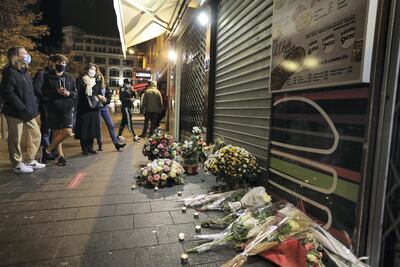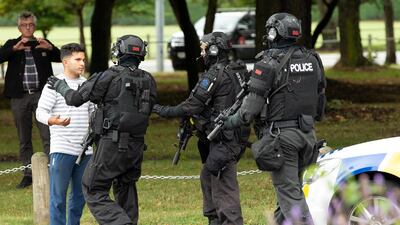Two seemingly unconnected events took place last month, one in Singapore, the other in Washington. News of the latter spread throughout the world: supporters of former US president Donald Trump stormed Capitol Hill. The former, however, is less well-known but could have been deadlier.
A young, far-right extremist in Singapore planned to copy the Christchurch massacre of 2019 in New Zealand, in which 51 Muslim worshippers were gunned down. He was caught before he made good on his plans. The averted disaster does, though, beg the question: are we aware of the extent of the threat posed by the far right globally?
In his inauguration speech, US President Joe Biden discussed the "rise of political extremism, white supremacy, domestic terrorism that we must confront and we will defeat”. It was an announcement long overdue in the US.
The election of Mr Trump to the White House in 2016 showed how much the former US president appealed to white supremacists in the US.
The white supremacist movement, however, predates Mr Trump and his presidency. Contemporary far-right extremism has been mobilising in the US for more than a decade and in quite plain sight. If one takes a wider view, white supremacy has been at work in the US since its founding in 1776, most infamously embodied in the institution of slavery. That Mr Biden recognised from the presidential podium this danger is an important first step.
But there was a phrase of Mr Biden’s that could have misled observers. He described this type of political extremism as "domestic terrorism", which is a narrow space for it. Terrorism is certainly not constrained within borders. Extremism is a transnational threat and the network operates across borders.
The Christchurch massacre was the most horrific recent example, but there have been many more: the Breivik massacre in 2011 in Norway, another attack in Oslo in August 2019, among others. Some resulted in terrible sufering and some were thankfully foiled. Nonetheless, the threat is widely felt across the world.
Now, in Singapore, a famously tolerant and multicultural society, the 16-year-old who is in custody, intended to knife his victims on the second anniversary of the Christchurch massacre, on March 15.
The accused, according to reports, planned to live stream his attack as he was influenced by the Christchurch killer's method. Officials also said that the accused was preparing to hand out documents relating to the attacks in France last year, when a man armed with knives killed three people at a church in Nice in the first of four terror attacks that unfolded.

Such shocking tales of disasters in the making raise the question: will the international community take up the responsibility of facing the threat of far-right extremism and its allies with the determination required?
It is as yet unclear. At the moment, the Biden administration seems keen to establish a new set of priorities, and one hopes that a restructured focus on different types of extremism will be a part of it. The security establishment in the US has been warning of far-right infiltration into law enforcement for more than a decade. And across the West, including in the UK and elsewhere, there has been a growing recognition that it is the most prescient threat to western countries domestically.
But, of course, we have a significant problem when it comes to dealing with this, and that is admitting how deep the rot actually goes. On the extreme right-leaning side of the political spectrum, there is often sympathy for white supremacists. Too few people in high office, especially conservatives in western societies, may be willing to openly admit this. But denial is no longer possible. A YouGov poll indicated that 45 per cent of Republican voters supported the storming of the Capitol, even while many Republican leaders eventually expressed opposition to it.
As for those beyond the West, the averted attack in Singapore should make it clear: acts by far-right extremists and non-state actors may be the next scourge they need to guard against. At their own peril, political leaders worldwide can choose to ignore this threat. In the process, however, their countries may be the next target.
Dr HA Hellyer, a Carnegie Endowment scholar, is a senior fellow at the Royal United Services Institute and Cambridge University


